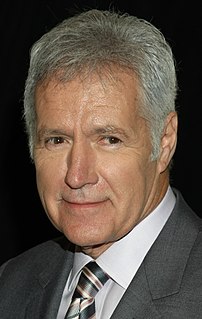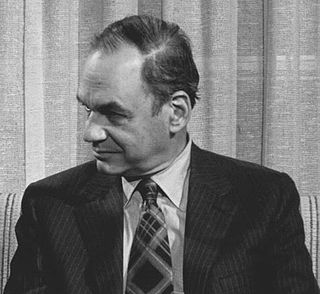A Quote by Alex Trebek
Saying that I've THOUGHT about it doesn't mean that I'm DOING it.
Related Quotes
We cannot define anything precisely. If we attempt to, we get into the paralysis of thought that comes to philosophers, who sit opposite each other, one saying to the other, "You don't know what you are talking about!" The second one says, "What do you mean by know? What do you mean by talking? What do you mean by you?"
I love saying 'yes' and I love saying 'please.' Saying 'yes' doesn't mean I don't know how to say no, and saying 'please' doesn't mean I am waiting for permission. 'Yes please' sounds powerful and concise. It's a response and a request. It is not about being a good girl; it is about being a real woman.
[Barack Obama] was running for Senate and he's saying, I'm not for gay marriage because I'm a Christian. Jump off a bridge! I mean what the hell are you talking about? You know, I mean, what's he doing now? He's evolving. Evolving? Well, evolve for Christ's sake! And this is a guy - the whole gay community, and the whole environmental community and all these other people said, he's our guy.
Donald Trump creates word salads. And that is awful to language, because we try to parse out what he's saying and try to find meaning in it. Journalists don't have a choice about reporting what the president says. I find the idea - "Let's not write about his tweets" - to be absolutely ridiculous. I mean, he's the president! Of course, we have to write about his tweets and look at what they mean. The problem is, they're hollow. But we don't have the option of ignoring what he's saying because he's president. That's damaging to language, and to journalism.
One of the most painfully inauthentic ways we show up in our lives sometimes is saying "yes" when we mean "no," and saying "no" when we mean "hell yes." I'm the oldest of four, a people-pleaser - that's the good girl straitjacket that I wear sometimes. I spent a lot of my life saying yes all the time and then being pissed off and resentful.
Some of the justifiable critiques has been by - been so successful in telling this story, you know, there's a danger of saying, oh, well, you know, we don't need to worry about this because that's absolutely not the case. What [Hans] Rosling is doing is showing us an overall global trend, which in a sense tells us how bad things were - doesn't mean to say the problems are gone, doesn't mean to say they're any less.

































